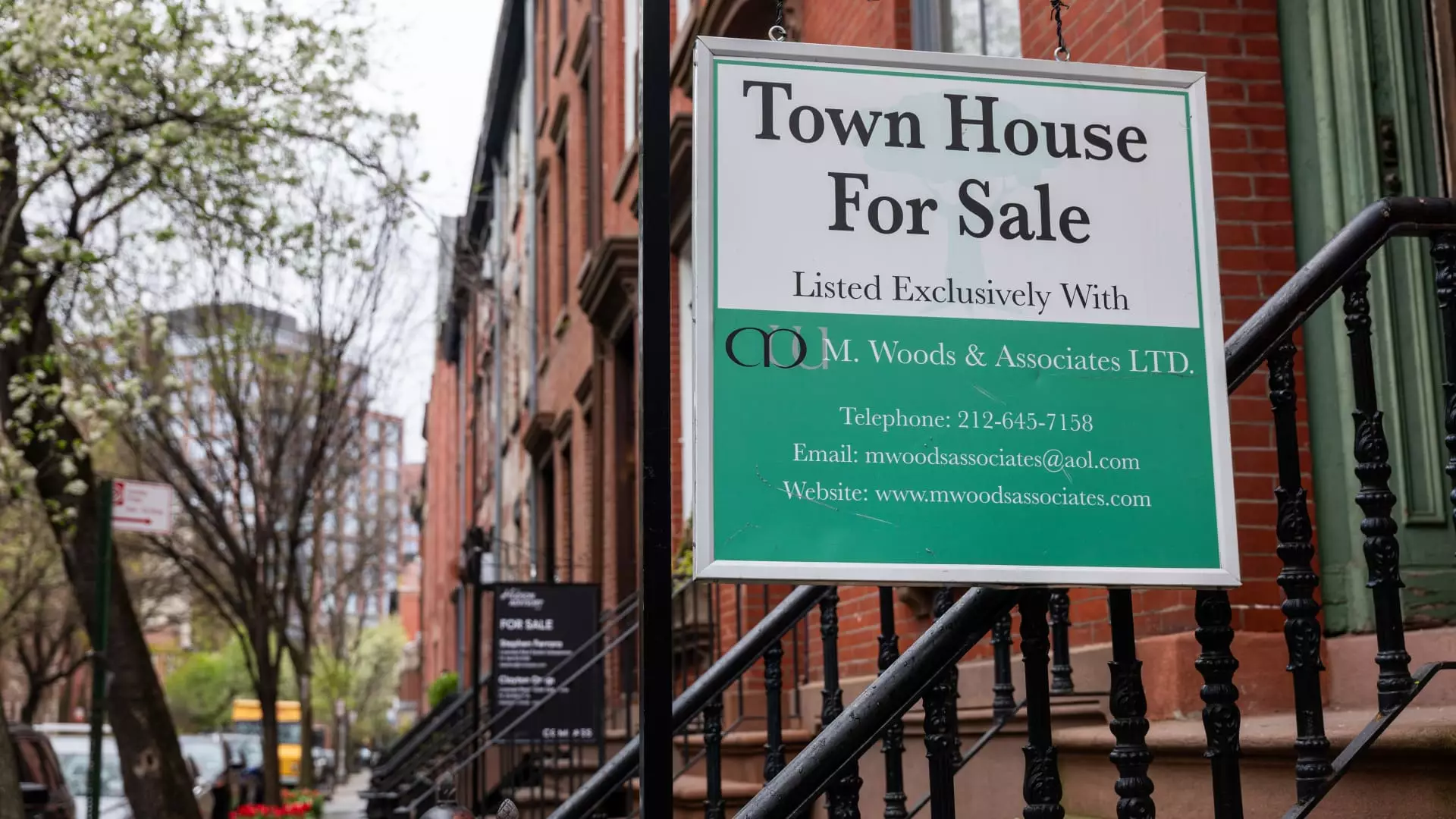The dream of owning a home has become increasingly out of reach for renters, as highlighted in a recent survey released by the New York Federal Reserve. The survey found that the percentage of renters who believe they will one day be able to afford a home has reached a record low of 13.4% as of February 2024, down from 15% in the previous year and significantly lower than the peak of 20.8% in 2014. This decrease in optimism about future prospects is a concerning trend that is influenced by several factors.
One major hurdle for renters looking to transition to home ownership is the perceived difficulty in obtaining a mortgage. The survey revealed that 74.2% of renters view obtaining a mortgage as somewhat or very difficult, a significant increase from previous years. This sentiment has worsened notably from 2023 and 2022 levels, indicating a growing sense of financial insecurity among renters.
Adding to the challenges faced by renters is the persistently high mortgage rates and soaring housing costs. Currently, a 30-year fixed-rate mortgage carries an average borrowing rate of 7.22%, the highest seen since late November 2023. This high cost of borrowing, coupled with a median home price of $388,700 in February, according to the National Association of Realtors, has made home ownership an increasingly unattainable goal for many renters. The NAR’s housing affordability index was at 103 in February, further highlighting the strain on renters’ finances.
Future Outlook
Looking ahead, survey respondents expect housing prices to continue rising, with a projected increase of 5.1% over the next year. This outlook is nearly double the expected rate from the previous year and above pre-pandemic levels. Despite speculation about potential interest rate cuts by the Federal Reserve, renters anticipate borrowing costs to rise further, reaching record levels of 8.7% in a year and 9.7% in three years.
Renters are also facing challenges on the rental front, as survey respondents expect rental costs to increase by 9.7% over the next year, marking a significant rise from the previous year’s projections. This trend places additional financial strain on renters who are already struggling with high housing costs and limited prospects for home ownership.
The recent survey results come at a time of economic uncertainty, with the Federal Reserve facing challenges in bringing down inflation rates to target levels. The Fed’s decision to hold benchmark interest rates steady reflects a cautious approach to monetary policy in the face of ongoing economic uncertainties. While there are expectations of potential interest rate cuts in the future, renters remain pessimistic about the trajectory of mortgage rates and housing affordability.
The challenges of home ownership for renters are multifaceted, with high mortgage rates, soaring housing costs, and limited financial prospects contributing to a bleak outlook for renters hoping to transition to home ownership. As economic uncertainties persist, renters continue to face significant barriers in achieving the American housing dream.

